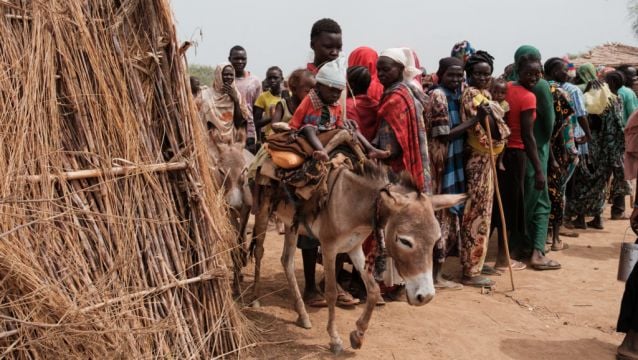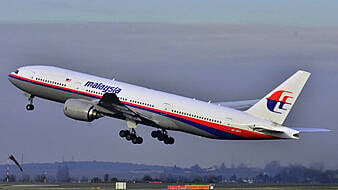A global food monitor concluded on Thursday that war in Sudan had caused famine at a camp for displaced people in North Darfur, and similar conditions may exist elsewhere in the region.
The finding comes amid a deepening hunger crisis across Sudan triggered by war between two military factions, the army and the paramilitary Rapid Support Forces (RSF), which erupted on April 15th, 2023.
What is famine, and who confirms one?
Famine is assessed by the Integrated Food Security Phase Classification (IPC), an initiative of more than a dozen UN agencies, regional bodies and aid groups.
It is the main global system for measuring the severity of food crises. Its most extreme warning is Phase 5, which has two levels, catastrophe and famine.
For famine to be declared, at least 20 per cent of the population in an area must be suffering extreme food shortages, with 30 per cent of children acutely malnourished and two people out of every 10,000 dying daily from starvation or malnutrition and disease.
If the IPC or one of its partners finds that at least one area is in famine, a famine review committee (FRC), led by up to six experts, is activated.
Famine has been declared twice since the process was created: in parts of Somalia in 2011 and in parts of South Sudan in 2017.
What does famine classification mean?
While a famine classification does not trigger any formal response, it can focus global attention.
Experts and UN officials say in Sudan's case, a famine classification could lead to measures including a UN Security Council resolution empowering agencies to deliver relief across borders, similar to one used for Syria in 2014.
However, a resolution could be subject to veto, and the army has signalled its opposition to a famine classification, for fear of losing the authority to control its borders.
Two UN officials in Sudan told Reuters that as long as an army-backed government holds a seat in the UN general assembly, UN agencies have to seek its consent in respect to state sovereignty.
Efforts to send in aid could be complicated by RSF control over Darfur. Experts say any aid mission would need an international force to create a humanitarian corridor.
What is the current assessment in Sudan?
The FRC findings published on Thursday say Zamzam is likely to remain in famine conditions at least until October.
The committee said it was limiting its conclusions to Zamzam due to limited data and the nature of the request it was acting on.
"Other areas of Sudan, both within Darfur and elsewhere, are potentially experiencing famine, and will remain at risk of famine as long as the conflict continues, and humanitarian access is denied," it said.
The IPC previously found that around half of Sudan's 50 million people face crisis levels of hunger.
Some 755,262 people, including those in Zamzam, faced "catastrophic" levels of hunger, and there was a risk of famine in 14 sites across the country, the IPC said in June.
How bad is Sudan's humanitarian crisis?
Sudan's humanitarian crisis is one of the worst in the world.
The war has ripped through civilian areas including the capital Khartoum, catching civilians in the crossfire. In the western region of Darfur, the RSF and its allies are accused of ethnic cleansing, charges they have denied.
The conflict has left Sudan with more internally displaced people than any other country. An estimated 10.7 million people have fled their homes, according to the International Organisation for Migration, including 7.9 million during the current war.
A further 2.3 million have crossed into neighbouring countries since mid-April last year, with Chad, South Sudan and Egypt each receiving hundreds of thousands of refugees.
The World Health Organisation says Sudan's health system is hanging by a thread, with just one quarter of health facilities functional in areas hardest hit by the war and nearly 15 million people requiring urgent health assistance for their survival.
Why is the situation so dire?
Sudan was already struggling before fighting erupted, dragged down by sanctions and isolation under former leader Omar al-Bashir, and by political upheaval and economic stagnation after he was overthrown in 2019.
Since the war began, aid agencies say they have faced huge logistical, security and bureaucratic problems.
They say the army has blocked humanitarian aid, and the RSF has looted it in areas it controls. Both sides have denied impeding humanitarian operations.
Local volunteers have tried to fill the gap, but have often been treated with suspicion, targeted, or struggled to raise donations.
Agriculture, which most of the population depends on for income, has been badly disrupted by the fighting.
Even when food is available, people struggle to buy it. Banks have collapsed, leaving many dependent on mobile payments that are disrupted by outages, or cash devalued by inflation.







